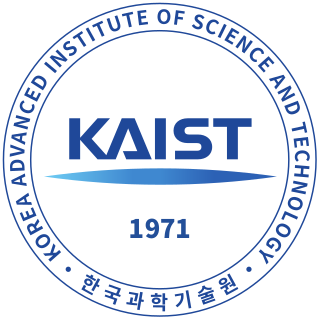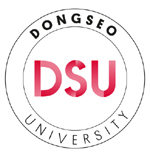
The Korea Advanced Institute of Science and Technology (KAIST) is a national research university located in Daedeok Innopolis, Daejeon, South Korea. KAIST was established by the Korean government in 1971 as the nation's first public, research-oriented science and engineering institution. KAIST is considered to be one of the most prestigious universities in the nation. KAIST has been internationally accredited in business education, and hosting the Secretariat of AAPBS. KAIST has 10,504 full-time students and 1,342 faculty researchers and had a total budget of US$765 million in 2013, of which US$459 million was from research contracts.
A Master of Business Administration is a graduate degree focusing on business administration, investment management. The core courses in an MBA program cover various areas of business administration such as accounting, applied statistics, human resources, business communication, business ethics, business law, strategic management, business strategy, finance, managerial economics, management, entrepreneurship, marketing, supply-chain management, and operations management in a manner most relevant to management analysis and strategy. It originated in the United States in the early 20th century when the country industrialized and companies sought scientific management.
A bachelor's degree or baccalaureate is an undergraduate academic degree awarded by colleges and universities upon completion of a course of study lasting three to six years. The two most common bachelor's degrees are the Bachelor of Arts (BA) and the Bachelor of Science. In some institutions and educational systems, certain bachelor's degrees can only be taken as graduate or postgraduate educations after a first degree has been completed, although more commonly the successful completion of a bachelor's degree is a prerequisite for further courses such as a master's or a doctorate.

A graduate school is a school that awards advanced academic degrees with the general requirement that students must have earned a previous undergraduate (bachelor's) degree. A distinction is typically made between graduate schools and professional schools, which offer specialized advanced degrees in professional fields such as medicine, nursing, business, engineering, speech–language pathology, or law. The distinction between graduate schools and professional schools is not absolute since various professional schools offer graduate degrees and vice versa.

Doctor of Medicine is a medical degree, the meaning of which varies between different jurisdictions. In the United States, and some other countries, the M.D. denotes a professional graduate degree. This generally arose because many in 18th-century medical professions trained in Scotland, which used the M.D. degree nomenclature. In England, however, Bachelor of Medicine, Bachelor of Surgery was used and eventually in the 19th century became the standard in Scotland too. Thus, in the United Kingdom, Ireland and other countries, the M.D. is a research doctorate, higher doctorate, honorary doctorate or applied clinical degree restricted to those who already hold a professional degree(Bachelor's/Master's /Doctoral) in medicine; in those countries, the equivalent professional to the North American and some others use of M.D. is still typically titled Bachelor of Medicine, Bachelor of Surgery (M.B.B.S.).
A Master of Laws is an advanced postgraduate academic degree, pursued by those either holding an undergraduate academic law degree, a professional law degree, or an undergraduate degree in a related subject. In most jurisdictions, the "Master of Laws" is the advanced professional degree for those usually already admitted into legal practice.
A medical school is a tertiary educational institution, or part of such an institution, that teaches medicine, and awards a professional degree for physicians and surgeons. Such medical degrees include the Bachelor of Medicine, Bachelor of Surgery, Master of Medicine, Doctor of Medicine (M.D.), or Doctor of Osteopathic Medicine (D.O.). Many medical schools offer additional degrees, such as a Doctor of Philosophy (Ph.D.), master's degree (M.Sc.) or other post-secondary education.

Hankuk University of Foreign Studies is a private research university based in Seoul, in South Korea. HUFS currently teaches 45 foreign languages. In addition, it contains studies in humanities, law, social sciences, business, medical science, natural sciences, and engineering.

Yeungnam University is a private research university and, located in Gyeongsan, North Gyeongsang, South Korea. The university's predecessors, Taegu College and Chunggu College, were founded in Daegu in 1947 and 1950 respectively. In 1967, the two colleges merged by President Park Chung-hee to form the degree-granting Yeungnam University. In 1972, the university's new main campus opened in Gyeongsan east of Daegu. The university includes colleges of Law and Medicine and a teaching hospital.
A Master of Engineering is either an academic or professional master's degree in the field of engineering.

Dongseo University (DSU) is a private university in Busan, the second largest city of South Korea. Established in 1992 through the Dongseo Educational Foundation, it provides higher education to approximately 11,000 full-time students, including roughly 1000 international students from 69 countries.

Korea University is a private research university in Seoul, South Korea. As one of the SKY universities, it is one of the oldest and most prestigious universities in the country. For the past 5 years, it has consecutively been ranked as one of the top 100 universities in the world by the QS World University Rankings.

A law school is an institution specializing in legal education, usually involved as part of a process for becoming a lawyer within a given jurisdiction.

The Edward J. Bloustein School of Planning and Public Policy of Rutgers University serves as a center for the theory and practice of urban planning and public policy scholarship. The school is located in New Brunswick, New Jersey, and was named in honor of the former Rutgers University president, Edward J. Bloustein. Through its academic programs and research centers, the Bloustein School engages in instruction and research, and combines learning and application. The school's strengths and the specializations of its faculty are vast and many of its faculty members are the founders of theories or practices that are now commonplace in urban planning and policy. Areas of expertise for Bloustein faculty members include transportation planning and the environment, while others have specialties in policy. In 2018, a year long search for a new dean ended when Piyushimita (Vonu) Thakuriah was announced as dean. Dr. Thakuriah's experience in both transportation and data science and the launch of a new graduate degree in Public Informatics signal the schools readiness top tackle the increasing pace of government innovation in the 21st century.

Konkuk University is one of the comprehensive private universities located in Seoul and Chungju. The Seoul campus is located in the southeastern part of Seoul, near the Han River, and is served by a metro station of the same name. The Seoul campus has 13 undergraduate colleges and 13 graduate schools, whereas the Glocal Campus in Chungju is composed of 7 undergraduate colleges and 2 graduate schools. Currently, 23,000 students are attending the 238,980m² Seoul campus and 15,500 students attending the 31,763m² Global Campus in Chungju, which is about an hour away from the Seoul Campus.
Engineering education is the activity of teaching knowledge and principles to the professional practice of engineering. It includes an initial education, and any advanced education and specializations that follow. Engineering education is typically accompanied by additional postgraduate examinations and supervised training as the requirements for a professional engineering license. The length of education, and training to qualify as a basic professional engineer, is typically 5 years, with 15–20 years for an engineer who takes responsibility for major projects.

Myongji University is a private, Christian university founded in 1948 in South Korea. It provides higher education in the fields of engineering, sciences and humanities. It has two campuses: the Social Science Campus is located in Seoul and the Natural Science Campus is in Yongin which is 35 kilometres (22 mi) south of the capital. It is made up of 10 colleges, 42 departments, seven faculties and eight specialized postgraduate programs.

The Seoul National University of Education (SNUE) is a government-run institution which provides training for future public elementary school teachers in South Korea. Founded in May 1946 under the name of Kyunggi Public Regular School, the university is the first national university that specializes in elementary school teacher training.

Torch Trinity Graduate University (TTGU) [Korean: 횃불트리니티신학대학원대학교] is an evangelical graduate school and seminary in Yangjae-dong, Seocho District, Seoul, South Korea. It was formerly called Torch Trinity Graduate School of Theology (TTGST). The university commits itself to the cause of Christian missions, with an emphasis on training future leaders of the church from all over the world.

The University of the Philippines Asian Center is a degree-granting unit of the University of the Philippines, and is the only unit of the university with a regional area of specialization. The Asian Center offers multidisciplinary graduate programs on Asian Studies and on Philippine Studies. Its mandate is underpinned by Republic Act No. 5334, which was enacted in June 1968. The Center is a member of Consortium for Southeast Asian Studies in Asia and the Kyoto International Consortium for Asian Studies (KICAS).













